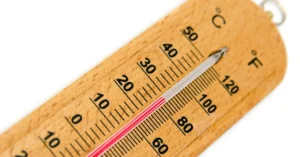In the ever-evolving world of tobacco products, Seneca cigarettes hold a distinct place, both economically and culturally. They are known for being affordable, widely distributed, and, to some extent, politically and socially controversial. Manufactured by Native American-owned enterprises, Seneca cigarettes are not just a product but part of a broader conversation about tribal sovereignty, taxation, health, and identity.
For those unfamiliar with Seneca cigarettes, or those looking for a more informed view beyond price and availability, this article offers a comprehensive look into their origin, how they’re made, why they remain in demand, and how they fit into the wider narrative of tobacco production and regulation in North America.
Whether you’re a consumer, researcher, policy analyst, or simply curious, here’s a deep dive into what makes Seneca cigarettes notable, what they represent, and the broader implications tied to their production and use.
What Are Seneca Cigarettes?
Seneca cigarettes are a brand of cigarettes manufactured primarily by Native American tobacco companies operating on tribal lands in the United States and Canada. Most notably, they are produced by companies affiliated with the Seneca Nation of Indians, based in western New York.
These cigarettes are typically sold at a lower price point than mainstream commercial brands. This affordability stems from the unique legal and tax status of tobacco products made and sold on Native American reservations. In many cases, these cigarettes are not subject to federal or state excise taxes, particularly when sold to Native American consumers.
While Seneca is a brand name, it also loosely refers to a category of tribal-manufactured cigarettes, which can vary slightly in quality and packaging but are unified by their origin.
The Historical Context of Seneca Cigarettes
To understand Seneca cigarettes fully, one must first understand the historical and political background that has shaped their production and distribution.
Native American Sovereignty and Tobacco
Tribes like the Seneca Nation operate under sovereign status, meaning they have their own laws, taxation systems, and economic enterprises. Tobacco has long been both a ceremonial and economic product in Native communities. In the late 20th century, tribal governments began manufacturing cigarettes as a form of revenue generation, economic independence, and job creation.
The Rise of the Brand
Seneca cigarettes gained popularity in the 1990s and 2000s as tribal tobacco manufacturers began expanding beyond reservation borders. The affordability, often half the price of name-brand cigarettes, attracted a wide customer base, especially in regions near tribal lands.
How Are Seneca Cigarettes Made?
Ingredients and Process
Seneca cigarettes contain the same primary ingredients as most commercial brands:
- Cured tobacco (often American blend)
- Additives for flavor and shelf life
- Rolling paper and filters
Manufacturing facilities on reservations are often modern and regulated by tribal governments. Though not necessarily held to FDA standards, many tribal manufacturers voluntarily implement quality control systems to maintain consistency and consumer trust.
Varieties Available
Much like other major cigarette brands, Seneca offers multiple varieties:
- Full Flavor
- Lights
- Menthol
- 100s (longer cigarette size)
The packaging is often simple and functional, with clear labeling but less aggressive branding than commercial giants.
Pricing and Distribution
Why Are Seneca Cigarettes Cheaper?
The most significant driver of Seneca’s popularity is its price. This cost advantage stems from several factors:
- Tax Exemptions: On tribal lands, excise taxes may not apply.
- Lower Overhead: Tribal enterprises may have lower operational costs.
- Direct Distribution: Often sold through reservation smoke shops or affiliated stores.
That said, regulations have tightened in recent years. Some states have imposed stamps or collection agreements to ensure tax parity when these cigarettes are sold off-reservation.
Where Are They Sold?
Seneca cigarettes are primarily sold in:
- Smoke shops on reservations
- Border towns near tribal lands
- Online (though increasingly restricted)
Some states have banned their sale altogether or heavily regulated their distribution, citing concerns over tax evasion and unregulated products.
The Regulatory Landscape
The legal framework around Seneca cigarettes is complex and differs by state and country. Key points include:
Federal Regulations (U.S.)
- FDA Oversight: Since 2009, the Family Smoking Prevention and Tobacco Control Act has given the FDA authority over tobacco products. However, enforcement on tribal lands is a legal gray area.
- Interstate Commerce: Transporting untaxed cigarettes across state lines can trigger federal enforcement, especially if done in bulk.
State-Level Conflicts
States like New York and California have attempted to:
- Tax tribal cigarette sales to non-Natives
- Ban the sale of untaxed cigarettes off-reservation
- Monitor shipment and stamping requirements
These efforts have led to several legal battles, with tribes arguing for sovereignty and states arguing for revenue protection and public health.
Public Health Perspective
Like all tobacco products, Seneca cigarettes carry the same health risks:
- Lung cancer
- Heart disease
- Respiratory illness
- Addiction via nicotine dependence
However, public health advocates often raise additional concerns about tribal brands:
- Regulatory gaps: If not held to FDA standards, quality and safety can be inconsistent.
- Marketing: While less flashy, low prices can appeal to youth and low-income populations.
That said, it’s critical not to stigmatize tribal tobacco manufacturing without nuance. Many Native communities argue that their cigarette businesses are less about tobacco promotion and more about economic self-determination.
The Economic Role in Native Communities
Revenue and Employment
For many tribes, cigarette manufacturing is a critical revenue stream that supports:
- Education
- Health care
- Infrastructure
- Cultural programs
It also provides employment in regions with limited economic opportunities.
Sovereignty in Action
Producing and selling cigarettes is seen by many tribes as an assertion of economic sovereignty. The ability to operate businesses independent of state regulation is a core aspect of tribal identity and legal rights.
However, tension arises when tribal economic goals intersect with national public health policies.
Social Perceptions and Controversies
Supportive Views
- Cultural resilience: Some view tribal tobacco production as a modern extension of traditional practices.
- Economic empowerment: A way for tribes to reclaim wealth historically denied.
Criticisms
- Health impact: Critics argue that cheaper cigarettes undermine anti-smoking efforts.
- Regulatory circumvention: Opponents say tribal products create loopholes in state and federal tax structures.
The truth lies somewhere in between. Seneca cigarettes are both a survival strategy and a policy challenge—making them more than just a product on a shelf.
The Canadian Context
Seneca cigarettes are also manufactured and distributed in Canada, particularly by members of the Haudenosaunee Confederacy and Mohawk Nation. The same themes emerge:
- Sovereignty vs. taxation
- Economic survival vs. public health
- Cultural identity vs. legal scrutiny
Canadian authorities have tried to crack down on unlicensed cigarette sales, often resulting in border seizures, arrests, and cross-jurisdictional conflict.
Conclusion
Seneca cigarettes represent far more than a low-cost tobacco option. They are the product of a unique intersection of tribal sovereignty, economic necessity, legal complexity, and cultural identity. While their affordability and availability have made them a fixture in some communities, their existence also provokes important questions about public health, taxation, and self-governance.
To understand Seneca cigarettes is to look beyond the smoke and into the fabric of how history, law, and economy intertwine in modern America and Canada. Whether you support or oppose their proliferation, they are undeniably a subject worth understanding—not just as a product, but as a reflection of deeper national conversations.
FAQs
1. Are Seneca cigarettes legal to buy?
Yes, when purchased on tribal lands or from authorized retailers. Off-reservation sales may be subject to state taxes or restrictions depending on local laws.
2. Why are Seneca cigarettes so much cheaper than other brands?
They are often exempt from state excise taxes when sold on tribal lands, and produced at lower cost by sovereign tribal enterprises.
3. Are Seneca cigarettes regulated by the FDA?
Not in the same way as commercial brands. While FDA guidelines apply broadly, enforcement on tribal land varies and is a matter of legal debate.
4. Are Seneca cigarettes safe or healthier than other brands?
No. Like all tobacco products, they carry significant health risks including cancer, heart disease, and nicotine addiction.
5. Can I buy Seneca cigarettes online?
In many jurisdictions, online sales are restricted or banned to prevent tax evasion and ensure age verification. Always check your local laws.
For more information, click here.









